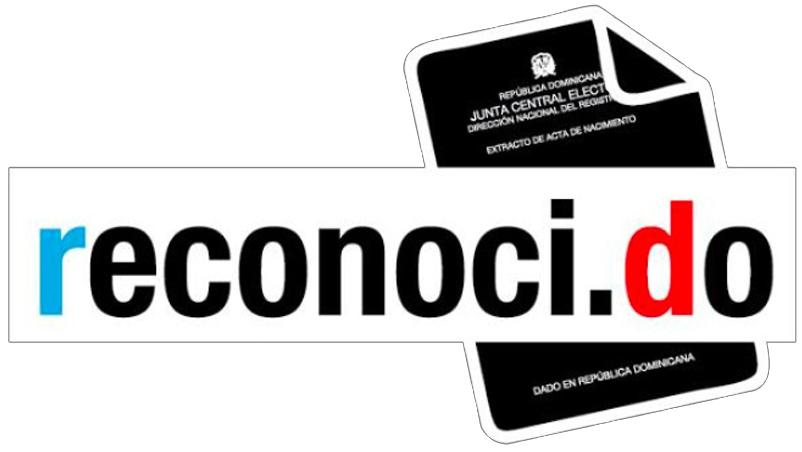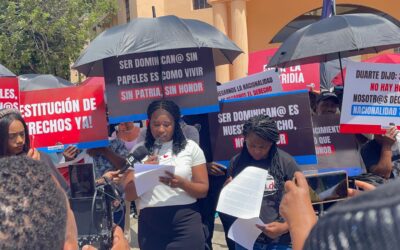Sociology must not be at the service of apartheid
Dear professors, students, and scholars of sociology,
As a Dominican, a sociology graduate from the Autonomous University of Santo Domingo (UASD), and as a social activist, I felt compelled to write this open letter to the participants in the Congress of the Latin American Sociological Association (ALAS). The prominence that government authorities have taken in the event is regrettable, given the massive human rights violations that have been carried out since 2021, with an illegal and unconstitutional campaign of mass deportations targeting Haitian immigrants and Dominicans of Haitian descent. This campaign violates the domestic legal order and all international commitments undertaken by the Dominican state.
I believe that critical thinking is incompatible with servility to power, especially when that power is wielded to crush human rights. That is why I believe I can appeal to the solidarity of those who visit our country to participate in this Congress and have no commitments to official Dominican politics.
You should know that the Dominican government continues a longstanding policy of state-sanctioned racism, which includes grim milestones such as the massacre of Haitians and Dominicans of Haitian descent in 1937, when around twenty thousand people were killed by the state; the institutionalized forced labor in the sugar industry to the detriment of Haitian workers and Dominicans of Haitian descent for over a century; the unconstitutional ruling 168-13 in 2013, which retroactively denationalized several generations of Dominicans of Haitian descent; and the current campaign of mass deportations which is officially directed against the Haitian immigrant community, but also affecting Dominicans of Haitian descent and even Black Dominicans and Black people of other nationalities due to the widespread nature of arbitrary detentions.
These racist policies have led to the Dominican state being condemned in the Inter-American human rights system and to the issuance of protective measures for persecuted human rights defenders.
Of the more than two hundred thousand people who were retroactively stripped of Dominican nationality for having Haitian parents or grandparents, only around thirty thousand have regained their documentation. I am one of them. However, the restitution was not complete, as the state has created a racially segregated civil registry for people like me. For others affected by the 168-13 ruling, the consequences have been even worse; most have been left stateless and are vulnerable to immigration raids.
The government boasts of having achieved a record of around half a million expulsions from 2021 to date. On October 2, 2024, coinciding with the commemoration of the Parsley Massacre of 1937, President Luis Abinader announced a target quota of 10,000 expulsions per week. The aim of this official goal is to carry out over five hundred thousand expulsions in the coming year. According to the most recent estimates from the National Institute of Migration, a government institution, there are just over five hundred thousand Haitian immigrants in the country. Thus, the official goal points to ethnic cleansing.
Even though, for various reasons, this policy cannot succeed—among others because the government itself heavily relies on Haitian immigrant labor for the construction of infrastructure, ironically even to build a border wall inspired by Trump’s wall—the mere fact of its formulation is a warning that should resonate throughout our region. Even if the government fails to achieve its proposed the ethnic cleansing, it will significantly increase the oppression and misery of the most marginalized, exploited, and oppressed sector of the Dominican Republic, which is the Haitian and Dominican community of Haitian descent. Immigration raids are rife with violence, with numerous reports of forced disappearances, theft, extortion, and sexual violence.
This quota of ten thousand expulsions per week entails the overwhelming of the precarious infrastructure of migrant detention centers. To meet these quotas, military and police forces resort to arbitrary detentions based solely on racial profiling, raids on homes and businesses without judicial warrants, and the detention of minors separated from their families, among other systematic violations of due process, Dominican migration law, and the Constitution. We are facing a de facto state of exception that has not been formally approved by Congress.
All of this is ideologically justified by claiming that Haitian immigration poses a supposed threat to national security and sovereignty. We already know what that means—labeling a social group as a threat to the state.
Haitian immigration has built the country; it has been the foundation of its first and main industry, sugar, throughout the 20th century. Today, it is the Haitian working class that builds the hotels where many of you are staying, the one that plants and harvests coffee, rice, and other agricultural products. We have built this country, we have fed it, we have enriched its ruling class, and instead of recognizing our rights as equals before the law, the regime labels us a threat to the sovereignty and survival of the Dominican state and threatens us with ethnic cleansing.
The Dominican Republic, with its beautiful beaches and colonial buildings that attract so many tourists, has become a state where access to nationality is racially conditioned. Where thousands of people of an oppressed race survive in conditions of semi-slavery and exploitation, and if they claim their rights they are shot at, detained and expelled, as what happened this year at the Central Sugar Consortium. A country where pregnant women are detained in hospitals to be taken to overcrowded detention centers and later expelled from the country. Where children are separated from their parents. A State that detains Black people en masse and does not even grantthem the right to legal assistance. In short, a state where the oppressed race has no political, economic, or social rights; such is the reality of Haitian immigrants and denationalized Dominicans of Haitian descent. It is an apartheid regime.
What responsibilities are entailed in holding the ALAS Congress in a country under the yoke of apartheid? I hope you will consider this serious issue when adopting your resolutions, when drafting future statements from ALAS, and, hopefully, when publicly expressing solidarity with our persecuted community—for dignity, equality, and human rights.
Ana Maria Belique
Sociologist and Social Activist



